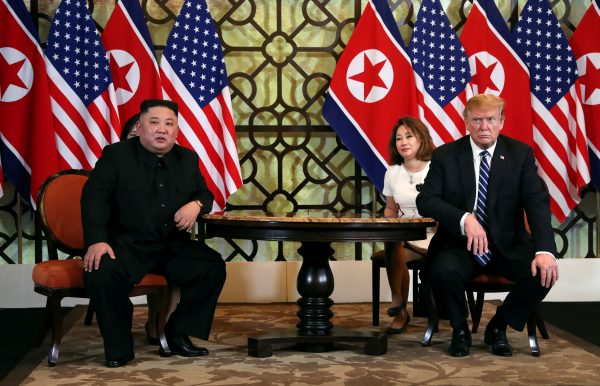Largely positive news coverage of the summit in North Korea may help shift the country’s image of the United States from an ‘evil empire’ to a potential long-term partner and source of hope. For a communist regime rife with hateful propaganda of state enemies, this could be seen as a paradigm shift toward mutual understanding. Similarly, while Trump’s tough but clear stance crucially communicates that North Korea will be unable to escape its existing gridlock through small commitments, the United States also now understands North Korea better.
Trump’s generous praise of Kim is an unorthodox approach. While its political cost is high — he already faces heavy domestic criticism — the strategy promotes respect and could be rewarding. North Korea is full of national pride and aspiration, so respect is critical for any partnership. Adopting an approach focused on respect improves North Koreans’ image of the US, enabling Trump to be tough and clear in negotiations without hurting Kim’s feelings.
Trump and Kim’s choice of Vietnam for the second summit, along with the diplomatic effort to make the unlikely meeting occur, demonstrates the two leaders’ shared vision and commitment to peace and prosperity. The location choice sent a strategic and clear message that the two leaders aspire to turn the two countries’ hostile relations into a strategic partnership, following the example of the United States and Vietnam.
But the results of the Hanoi summit were limited and even disappointing to some observers. This could be because negotiations failed to deliver the ‘four C-factors’: concept, commitment, capacity and context.
Concept here refers to the strategic framework North Korea must adopt to develop into a prosperous nation: denuclearisation, elimination of sanctions, integration into the world community and economic reform. The negotiation gap on the terms of an agreement on denuclearisation remains large. To overcome this gap, the two parties must reach consensus on ways to pursue denuclearisation and lift sanctions in parallel. Designing this process requires the participation of the United Nations and other key stakeholders including South Korea, Japan, China and Russia.
Considering the Hanoi summit did not cause rancour between Trump and Kim — despite its no-deal result — their commitment to continue working together appears robust. Yet Kim’s commitment to making decisive decisions remains questionable.
On capacity, significant challenges remain. Denuclearising is complex and takes time. Trump continues to face domestic political challenges while Kim’s team struggles to escape from its old-fashioned mindset.
Context will also pose challenges. It is nearly impossible for North Korea to strike a major deal with the United States while US–China trade tensions continue. Kim’s train trip to Hanoi through China signalled that North Korea will rely heavily on China in its journey toward peaceful prosperity.
How Kim leverages the Hanoi summit will also influence future negotiations.
Kim’s post-summit strategy and behaviour will test his strategic positioning skills. He will pass this test if he positions himself as a champion of peace needing help from the world to denuclearise and build prosperity. He will fail this test if he reverts to nuclear threats to gain bargaining chips for further negotiations.
Kim can also promote future negotiations if he views the Hanoi summit as an encouraging achievement and proactively leverages it to continue positive discussions with the US and other stakeholders. If Kim fails to commit publicly and sincerely to denuclearising North Korea, negotiations will falter.
Kim can expect further positive responses if he can articulate a clear vision of the future denuclearisation, economic development, and international presence of North Korea. At the same time, Kim should expand his outreach to the United Nations, China, Japan, Russia, Singapore and Vietnam in pursuit of this vision. He will discourage potential partners if he is content with the current impasse.
There is some indication that Kim may pass these leadership tests. Making an advanced commitment to peace is more rewarding for Kim and North Korea than remaining stuck in the existing stalemate. And Kim’s recent choice to not be listed as deputy of the North Korean Supreme People’s Assembly could indicate his preparedness for making bold decisions in the near future.
Although many are sceptical about Kim and his regime, it is not implausible that Kim will position himself wisely by proactively reaching out to the United States, South Korea and other major players to demonstrate his sincerity and commitment to denuclearisation. While progress on US–North Korea negotiations will advance more quickly once China strikes a trade deal with the United States, a third Trump–Kim summit may be on the horizon — perhaps in New York City, in the presence of the UN Secretary-General and other key stakeholders.
Vu Minh Khuong is Associate Professor at the Lee Kwan Yew School of Public Policy, National University of Singapore.

